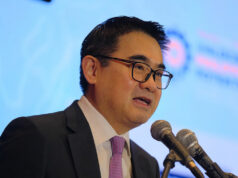Coco Levy Trust Fund Act ‘marginalizes farmers’
THE recently signed Republic Act No. 11524 or the Coconut Farmers and Industry Trust Fund Act has “serious” deficiencies, including the marginalization of farmers, according to the Federation of Free Farmers (FFF).
In a mobile phone message, FFF Chairman Leonardo Q. Montemayor said coconut farmers are not represented in the Trust Fund Management Committee created after the law was passed.
“(There is) no coconut farmer representation in the Trust Fund Management Committee chaired by the Finance Secretary. Yet the trust funds came from levies on coconut farmers,” Mr. Montemayor said.
“The new law seriously marginalizes coconut farmers, who are excluded from the powerful trust fund committee,” he added.
Under Section 10 of the new law, a trust fund management committee will comprise representatives from the Departments of Finance, Budget and Management, and Justice, with the Bureau of the Treasury as the committee secretariat.
The committee is charged with setting of investment priorities and asset allocation, among others.
Signed by President Rodrigo R. Duterte late Friday, the law places coconut levy assets in a trust that will modernize the coconut industry and help improve the lives of farmers.
The modernization process will follow a development plan prepared by the Philippine Coconut Authority (PCA).
The law directs the Bureau of the Treasury to transfer P10 billion to the trust fund in the first year, followed by another P10 billion in the second year, P15 billion in the third year, P15 billion in the fourth year, and P25 billion in the fifth year.
Mr. Montemayor, a former Agriculture Secretary, noted that another deficiency of the law is the division of the P5-billion annual budget allocation among various government agencies.
According to the law, an initial P5 billion will be available for the implementation of programs like the development of hybrid coconut seed farms, crop insurance, training, and credit access, among others.
“Many of these agencies are not engaged in the coconut industry. Farmers and farmers’ groups will be dealing with so many of them for credit, equipment, training, farm roads, etc.,” Mr. Montemayor said.
“Agencies like the Commission on Higher Education (CHED), Department of Public Works and Highways (DPWH), Development Bank of the Philippines (DBP), and Technological Education and Skills Development Authority (TESDA), to my knowledge, have minimal or no direct involvement,” he added.
Agriculture Secretary William D. Dar said in a statement Saturday that the law will be a “game changer” and pave the way for the industrialization of the industry.
“This ushers in a new policy that will set in motion big reforms in the coconut industry using efficiently the proceeds of the coconut levy for the benefit of 2.5 million coconut farmers and their families, and the coconut industry in general,” Mr. Dar said.
Mr. Dar said the PCA board will comprise the Secretaries of Agriculture, Finance, Budget, Science and Technology, and Trade, as well as the PCA administrator and three coconut farmer representatives from Luzon, the Visayas, and Mindanao.
According to the Department of Agriculture (DA), the Philippines is the world’s second-largest producer and number one exporter of coconut products.
However, the DA said the coconut sector has faced lower productivity due to the reduced harvest area and lower yields.
Citing data from the PCA, the total area planted to coconut was 3.6 million hectares in 2018, with 347 million standing trees yielding about 44 nuts per tree a year.
“While we are replanting with high-yielding coconut varieties, our efforts are not enough due to limited budget. But with the coconut industry trust fund, we could do much more.”
In the same statement, PCA Administrator Benjamin R. Madrigal, Jr. said the PCA made changes in its organizational structure to be more efficient in addressing the needs of coconut farmers.
Mr. Madrigal said the PCA has established regular regional and provincial industry fora that gather the input of coconut farmers’ groups, government agencies, local government units, and other stakeholders.
Former President Ferdinand E. Marcos and his associates imposed the coconut levy on farmers, promising to improve the industry with the proceeds as well as a share of the investment returns.
However, the money was diverted to purchase corporate assets like the United Coconut Planters Bank and San Miguel Corp.
In 2019, Mr. Duterte vetoed a previous version of the measure, citing inadequate safeguards to prevent wealthy coconut farmers from taking control of the trust. — Revin Mikhael D. Ochave



